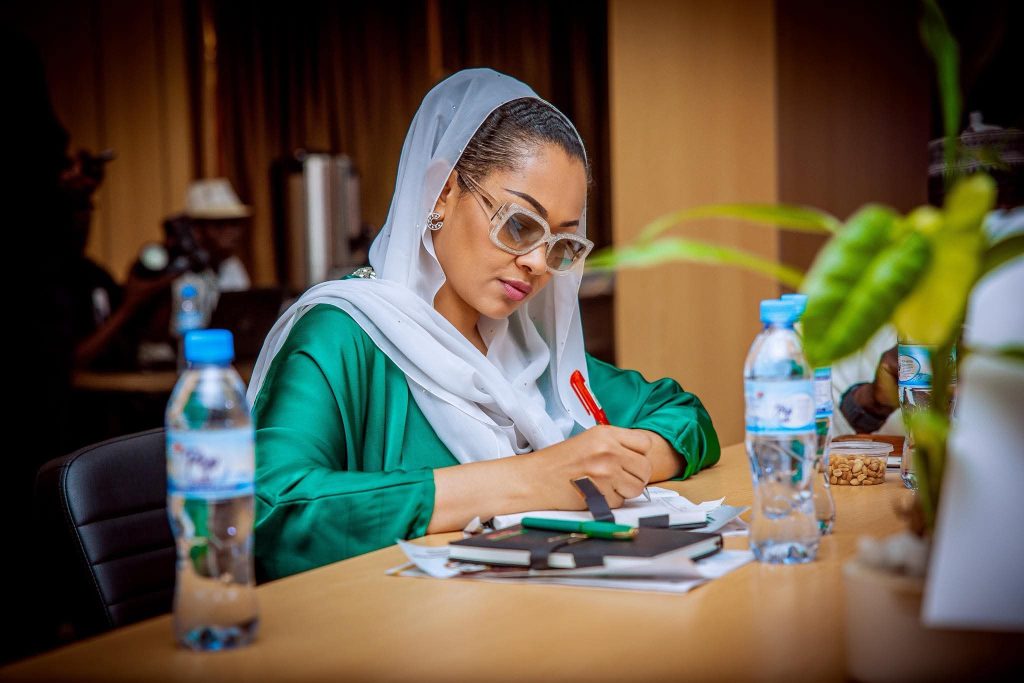By: Daniel Kanu
Editor
Civil society groups and activists have thrown their weight behind the proposed unionization of domestic workers in Nigeria, citing the sector’s vulnerability to abuse and exploitation.
The Centre for Children’s Health Education, Orientation and Protection (CEE-HOPE) on Friday, 17th October in Lagos, organized a media parley to mobilize support for the unionization effort.
Betty Abah, Executive Director of CEE-HOPE, and convener of the parley highlighted the crucial role domestic workers play in Nigerian society, often without recognition or protection.
She emphasized that the majority of domestic workers are women and girls, making it essential to protect their rights.
Recall that two bills are currently before the National Assembly aimed at improving the working conditions of domestic workers. The bills, if passed, would establish minimum employment standards, ensure protection and welfare, and provide access to social security.
Abah stressed that unionization would give domestic workers a collective voice to negotiate better terms, resist exploitation, and build solidarity.
Abah said that domestic workers are the invisible backbone of society. “They care for our homes, nurture our children, and support our families—yet they remain among the most unrecognized, undervalued, and vulnerable workers in Nigeria. For too long, their labour has been invisible and unprotected.”
She said the push for the unionisation of domestic workers was inspired by the International Labour Organisation (ILO) Convention 189 on decent work.
She revealed further that two bills are currently before the National Assembly, which, if passed, would transform the landscape for domestic workers in Nigeria.
According to her “” One of the Bills in the House of Representatives is titled: HB.1765: A Bill for an Act to Domesticate the ‘Domestic Workers Bill of Rights’ in Nigeria, Establishing Minimum Employment Standards, Ensuring the Protection and Welfare of Domestic Workers, and for Related Matters. The Bill sponsored by Hon. Akin Alabi, has passed second reading.
“” The Bill in the Senate is titled: SB.629: A Bill for an Act to Regulate and Formalise the Employment of Domestic Workers, Apprenticeships, Interns and Other Informal Sector Employees and to Empower the National Directorate of Employment to Issue Licenses and Monitor Privately Owned Employment Agencies in Nigeria. The Bill was sponsored by Senator Sani Musa. ”
Abah noted that bills represent a historic opportunity if passed would enshrine fair wages, safe working conditions, protection from abuse, access to social security, and enforceable legal recourse for domestic workers.
She said the bills, when passed, would formalise an entire sector that has long existed in legal limbo, bringing accountability, oversight, and dignity to millions who work behind closed doors.
“When workers come together in a collective, they can negotiate for better terms, resist exploitation, and build solidarity. Without a union, domestic workers remain isolated and voiceless; with one, they gain structure, voice, and protection. We have seen domestic worker unions in other countries push meaningful improvements in wages, working hours, and respect. Nigeria must embrace this path immediately.” Abah submitted.
Development expert Dr. Monday Ashibogwu and other speakers echoed Abah”s sentiment, citing examples of abuse and exploitation in the sector.
Ashibogwu said the formation of a union is a matter of right to protect the dignity of the Nigerian worker, citing examples of abuse in the banking sector because of the weakening of the union.
He said: “It is among domestic workers you find cases of child abuse, cases of manipulation, cases of sexual and gender-based violence. These are places where you find inhuman treatment, where people are asked to sleep in generator houses or dog beds. That shouldn’t be where a fellow human should stay because that person has chosen to be a domestic worker.”
He also added, “We have seen people pour hot water on domestic workers. These are not acceptable forms of treatment. Nobody would want that to be done to his son or daughter.”
Ashibogwu, submitted that no one is doing a domestic worker a favour by employing them, arguing that it is a service being rendered.
Former, Lagos State Coordinator of Child Protection Network, Ngozi Okoro, also called on the Nigerian government to back the unionisation of domestic workers as obtained in other countries like Ghana, Kenya and Uganda, where they have very vibrant domestic workers communities.
Said Madam Okoro “There is no organised or recognised domestic workers union in Nigeria, which is quite embarrassing because Nigeria has the highest population in Africa. And when you talk about their views of human rights, when you talk about impunity, when you talk about how people flaunt policies, it’s Nigeria.”
One of the Lagos coordinators of #EndBadGovernance, Comrade Hassan Taiwo Soweto, said the push for the unionisation of domestic workers is to protect the workers and employers.
He explained that “We need to ensure that domestic workers are organized as workers, and to ensure that they are not children.”
Media trainer, Lekan Otufodunrin, Assistant Executive Director at Corporate Accountability and Public Participation Africa (CAPPA), Zikora Ibeh, and a representative of the Nigeria Labour Congress (NLC), were also present at the event.
All the speakers asked the Nigerian government to support the unionization of domestic workers, pointing to examples in Ghana, Kenya, and Uganda where domestic workers’ unions have made a positive impact .



